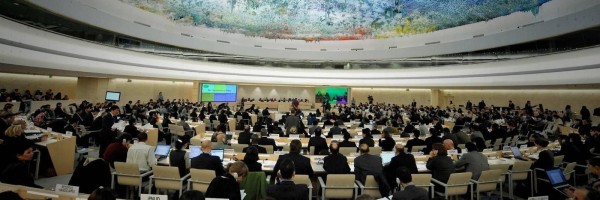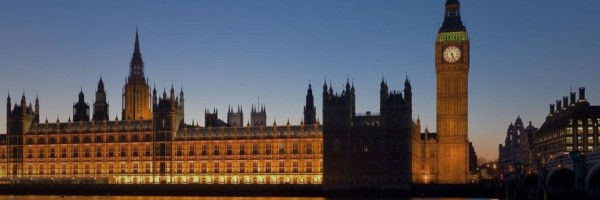Saudi Arabia is deemed a country of concern by the Foreign and Commonwealth Office. It has one of the worst records in the world for executions. More than 2000 people were executed in Saudi Arabia between 1985 and 2013. This equates to an average of 71 executions per year and almost 2 executions per week.
The most recent Economist Democracy Index has listed Saudi Arabia as the fifth most authoritarian government in the world. It is ranked equal to Burma and lower than Iran.
Clark acknowledges that the UK government accepts that Saudi Arabia has a poor track record of democracy and human rights, particularly in relation to women’s rights.
In her opening speech, Clark listed some of Kingdom’s most prominent human rights violations. These include human rights activists being held without charge for days and weeks on end, with some having reported being tortured. Many have been taken to trial for simply taking part in peaceful demonstrations. Human rights activist Zakaria Al Safwan was sentenced to 10 years in prison for writing an article titled “In Defence of Peaceful Protests”. Clark emphasises that independent organisations are banned in Saudi Arabia. Waleed Abulkhair, founder of the organisation Monitor of Human Rights in Saudi Arabia has also been harassed, banned from international travel and then imprisoned in 2014.
Following protests in the eastern regions of Saudi Arabia by the minority Shia, allegations have been made that the security forces have used excessive force against protesters.
Migrant workers have repeatedly reported being mistreated, including women being sexually abused by their employers. Clark also discusses the Court system in Saudi Arabia as it falls far short of international standards for fair trial. Defendants are rarely being allowed formal representation, are not being informed of the legal proceedings against them and allegations of torture are widespread. New terrorism laws have been frequently used against human rights activists. These laws include calling, participating or inciting sit-ins or protests.
Clark has on numerous occasions raised the case of the Princess’s with the UK government. She first raised it with the Prime Minister, David Cameron at Prime Ministers Question Time on the 30th of April 2014. Later, a statement to the House was made on the 11th of June 2014 and has had numerous correspondences with the Foreign and Commonwealth office. The government was to make representation but appears to not have taken any action to date. Clark has also asked for a debate on the poor response from the UK government regarding this case and others. The government has said that it is a matter for the Saudi Arabian authorities and the families concerned. Clark emphasised that although there are a number of members across each party that have been supportive, it is the people with the power that are not necessarily indicating the same kind of view. “If this is how women members of the Saudi Royal family are treated, it takes little imagination to work out the horrific situation that many other women in Saudi Arabia suffer.”
David Kawczynski, MP for the Shewsbury and Atcham in Shropshire and Chairman of the All Party Group of Saudi Arabia responded to Clark by saying that it is a matter very much for the minister to respond to the case of the Princess but if she would like me to raise the matter with the officials at the Saudi embassy “I would be delighted to go with her to do that and we could make representations together.”
Jeremy Corbyn, Labour MP of Islington North, has stated that Saudi Arabia has “virtually incalculable levels of financial wealth” and unusually high numbers of executions. He further states that discrimination against women is systemic, migrant workers are denied access to representation and frequently face deportation if they protest. The reforms in the law do not appear to apply to the 1.5 million domestic workers.
Corbyn further discusses Saudi Arabia’s role as a member of the UN Human Rights Council. He states that there is a responsibility upon Saudi Arabia as a member of the Council to accept the Universal Declaration on Human Rights which includes rights on free speech, representation, non-discrimination as well as religious, press and union freedoms.
Corbyn also returns to a point that Kawczynski had earlier made about the “strategic and economic role that Saudi Arabia plays” in the rest of the world. Corbyn explains that Saudi Arabia is the UK’s biggest arms purchasers and also one the biggest from the USA. Saudi Arabia has a “dubious economic relationship with BAE Systems and others.” The Serious Fraud Office had attempted to investigate the Al-Yamamah arms contract and was at one point during the investigation, close to revealing corruption and fraud that had occured. However, the then Prime Minister of the UK, Tony Blair intervened and stopped the investigation. Corbyn emphasised that arms contracts and the relationship that the UK has with the Saudi Royal family appears to override all other aspects including human rights issues. “It is this economic relationship with Saudi Arabia with the rest of the world that heavily influences the view on human rights”. The Government has denied that their commercial relationship does not prevent them from speaking openly about other problems. However, the government does take up human rights cases with other countries but appear to be reluctant to do so with Saudi Arabia.
To listen to the full debate please visit: http://www.bbc.co.uk/democracylive/house-of-commons-27979631
We at ALQST, would like to thank MP Katy Clark for bringing this debate to the attention of Parliament. We are in complete agreement with the points she has raised and promise to assist and highlight other cases. We are however, requesting Mr. Kawczynski to highlight the names of the organisations and members of these organisations that he states he has been in contact with inside of Saudi Arabia. Saudi Arabia has banned international organisations and those that have attempted to create an organisation have been arrested for either forming a secret organisation, attempting to seize power, inciting against the King.




